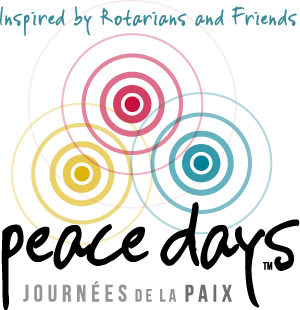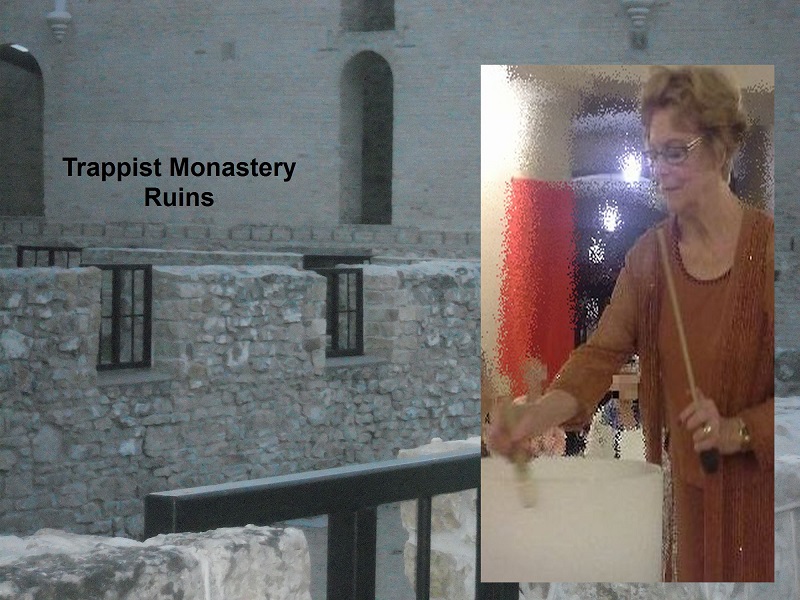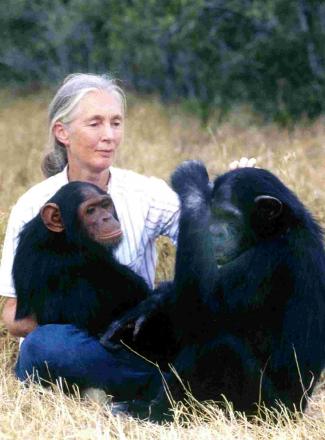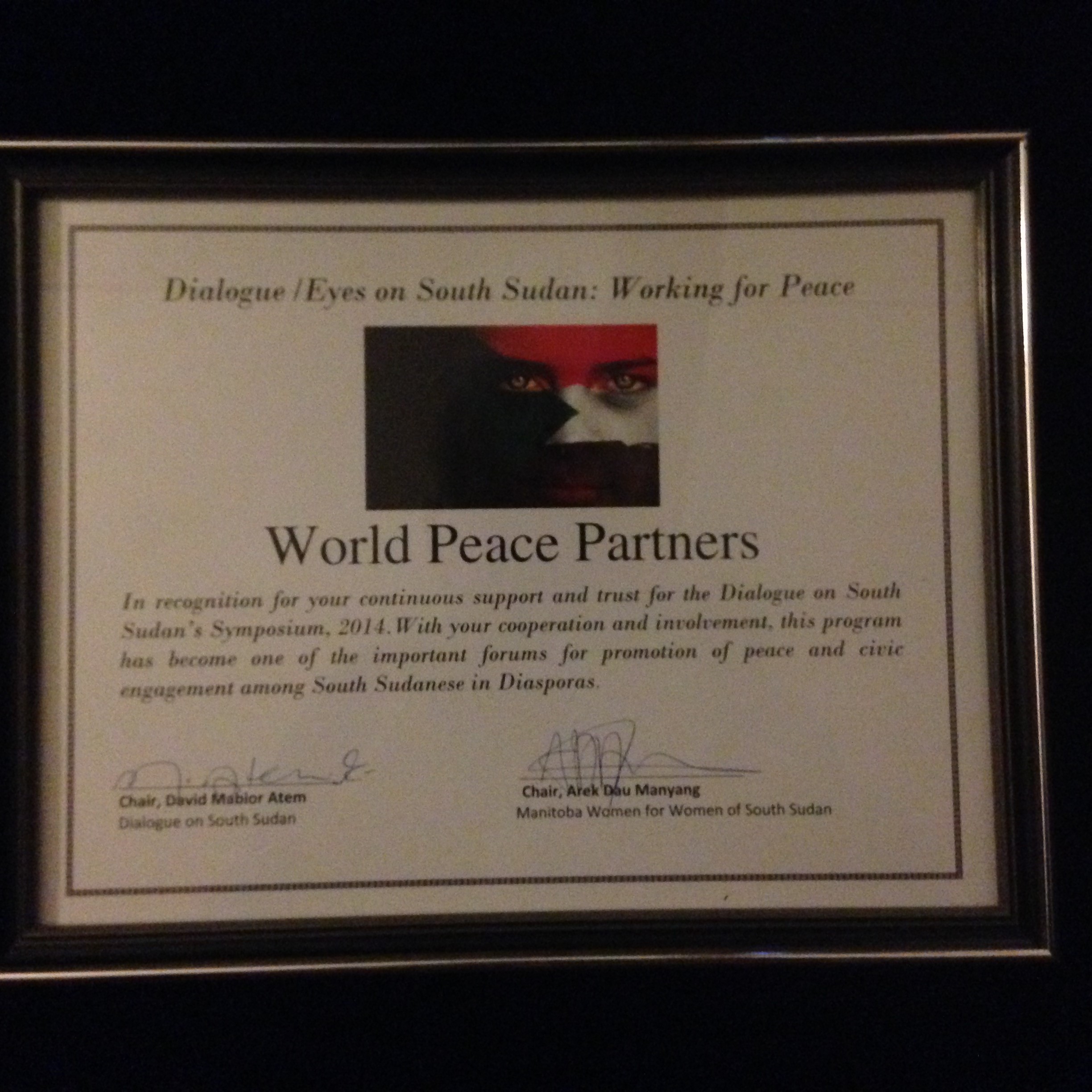I’ve had the privilege of being involved in three different programs through Rotary International that have changed my life: Rotary Youth Leadership Camp (RYLA), Rotary Youth Exchange, and the Emerging Issues in Human Rights university course, for which I received a bursary from The Rotary Club of Winnipeg.
Rotary Youth Leadership - Quinn Ferris

My experience with Rotary began when I was finishing grade 11, and was offered the chance to attend RYLA, a 6-day leadership camp in Clear Lake alongside other students from District 5550.
Before attending RYLA, I had been somewhat aware of the work Rotary had done in my community with fundraisers, such as the Rotary Cyclelothan I had participated in for many years.
It wasn’t until RYLA however, I learned what is offered to young people and how Rotary wanted to promote opportunities available for students coming out of high school and transitioning into the next stages of their life.
It was suggested to me I seriously consider doing an exchange which could be a huge stepping stone for helping build off my experience at RYLA, as well as preparing me for university.
Soon after returning home from RYLA, I applied for the year-long exchange through Rotary, where I would go to a foreign country for a year to study the language and culture of the country that was hosting me.
Rotary Youth Exchange
I finally found out I was accepted and would be spending my year in Cozumel, Mexico, just off the east coast of the Yucatan Peninsula. My experience on exchange was simply the best year of my life.
Many other exchange students who were either studying or travelling with me in Mexico often repeated a saying that spoke so true to the experience such a program offers: “Exchange is not a year of your life, it is a life in a year.”
The lessons and knowledge taken away from this program stay with students for the rest of their lives and broaden their horizons for whatever aspirations they hope to attain.
Learning how to become part of a new community that speaks a different language, has different beliefs and values, and shares a completely different culture than you, makes you grow as a person. It makes you more open minded and helps you be more successful once you return to your home country.
I remember in our district orientation, I had been in Mexico for just about a month by then. I was in a meeting with all the exchange students in my district, along with the chairmen of each state.
We were asked what we thought the purpose was of sending students on exchange, and what value Rotary saw in it. Many of us gave similar answers; learning a language, traveling, etc. However there was one reason we didn’t consider: world peace.
It was explained to us the promotion of world peace has always been a top priority for Rotary, and that sending students to other countries in the world will make them more understanding and accepting of each other and of other nationalities and beliefs. Having more young people being tolerant of each other’s differences will create a more peaceful world going forward.
The experience I gained in Mexico is something I will use the rest of my life. Coming back home last summer, there was certainly a lot I realized about my home country after being away for so long.
I developed a new appreciation for things like the education I received in Canada and the opportunities I’ve been provided with. Living in another country also gives you a different perspective in how you can make your community a better place and contribute to it.
Emerging Issues in Human Rights
The Emerging Issues in Human Rights Course helped me build on both my experience and knowledge I had gained through exchange. This course was a two-week summer course at the University of Winnipeg in partnership with the Canadian Museum for Human Rights, Global College and Rotary.
I was blown away by the course material and how interactive it was. We were involved in many different kinds of lectures and class discussions on human rights. Not only did we cover interesting material within our normal lectures, but we also visited many unique places relevant to our course material.
The course kicked off with a trip to Folklarama on the first day where we visited both the Irish and Ethiopian pavilions. The Canadian Museum for Human Rights hosted us for three days of classes and also gave us a tour of the exhibits. We visited Winnipeg Harvest where we toured the entire facility and learned about fighting hunger in our community.
We were also lucky enough to have guest lecturers come in to speak to us. Dr. Art Mickie spoke about the history of racism in Canada and Japanese Canadians fighting for equal rights. Shahina Siddiqui discussed Islamophobia in our society today, along with the role of the government in fighting it. David Newman Q.C., spoke to us about the opportunities available with Rotary and about choosing career paths.
Eduardo de Costa, a Rotary Peace Fellow who is originally from Brazil, spoke to us as well, and told us about opportunities and scholarships given to him through Rotary, including his time studying at Duke University.
Marilou McPhedran was our professor, and her background and accomplishments speak for themselves. Before becoming head of the Human Rights department at the University of Winnipeg, McPhedran worked as an international human rights lawyer for the United Nations. Her knowledge and experience inspired the class and she knew how to make people come together. Our class became extremely close which I think was a testament to our professor’s ability to bring people together.
The course was my first ever university course, and I’d be lying if I said I wasn’t a little intimidated going into the first day. That changed so quickly once the course got underway and looking back it was amazing how much I learned in such a short amount of time.
Having the financial aid of the bursary from Rotary helped a lot too. After coming back from Mexico I had just under two months to work before I started school in the fall. The course helped prepare me academically and really made me feel more comfortable once I began my time at U of M in the fall.
Gaining the experience of writing academic papers along with making connections with both professors and other students was extremely helpful for me.
Rotary is a special organization and its people represent that. I can’t express enough my sincere gratitude and appreciation for what Rotary has done in my life, and what it continues to do for young people.

Quinn Ferris (back row, second from right) and his classmates in the Emerging Issues in Human Rights Course.
I extend thanks to Frank Cosway, David Newman and the entire Winnipeg Rotary Club for the bursary I was given to attend the human rights course.
I’d also like to thank Paulette Connery for her support in sending me on exchange and Ray Ruth for his ongoing work with RYLA and the Youth Exchange program.
I am confident these programs will see many more years of success in changing students’ lives.






 Around the world, church bells, school bells, and hand-bells rang for peace on September 21, 2015.
Around the world, church bells, school bells, and hand-bells rang for peace on September 21, 2015. Dr. Jane Goodall will The Axworthy Lecturer Series on Social Justice and the Public Good. Her lecture on Friday, September 11, 2015 at 7 pm will be free and open to the public.
Dr. Jane Goodall will The Axworthy Lecturer Series on Social Justice and the Public Good. Her lecture on Friday, September 11, 2015 at 7 pm will be free and open to the public. When the Canadian Museum for Human Rights opened in Winnipeg this past September, it marked the fulfillment of a dream first announced by Canadian philanthropist Israel Asper in April 2003. It also held special meaning for Rotarians in District 5550 (Manitoba; parts of Ontario and Saskatchewan), who launched an ambitious initiative called World Peace Partners in the fall of that year, shortly after Asper’s death at age 71. Longtime Winnipeg Rotarian David Newman, co-founder and co-chair of World Peace Partners, spoke about the museum and his district’s peace efforts.
When the Canadian Museum for Human Rights opened in Winnipeg this past September, it marked the fulfillment of a dream first announced by Canadian philanthropist Israel Asper in April 2003. It also held special meaning for Rotarians in District 5550 (Manitoba; parts of Ontario and Saskatchewan), who launched an ambitious initiative called World Peace Partners in the fall of that year, shortly after Asper’s death at age 71. Longtime Winnipeg Rotarian David Newman, co-founder and co-chair of World Peace Partners, spoke about the museum and his district’s peace efforts.

